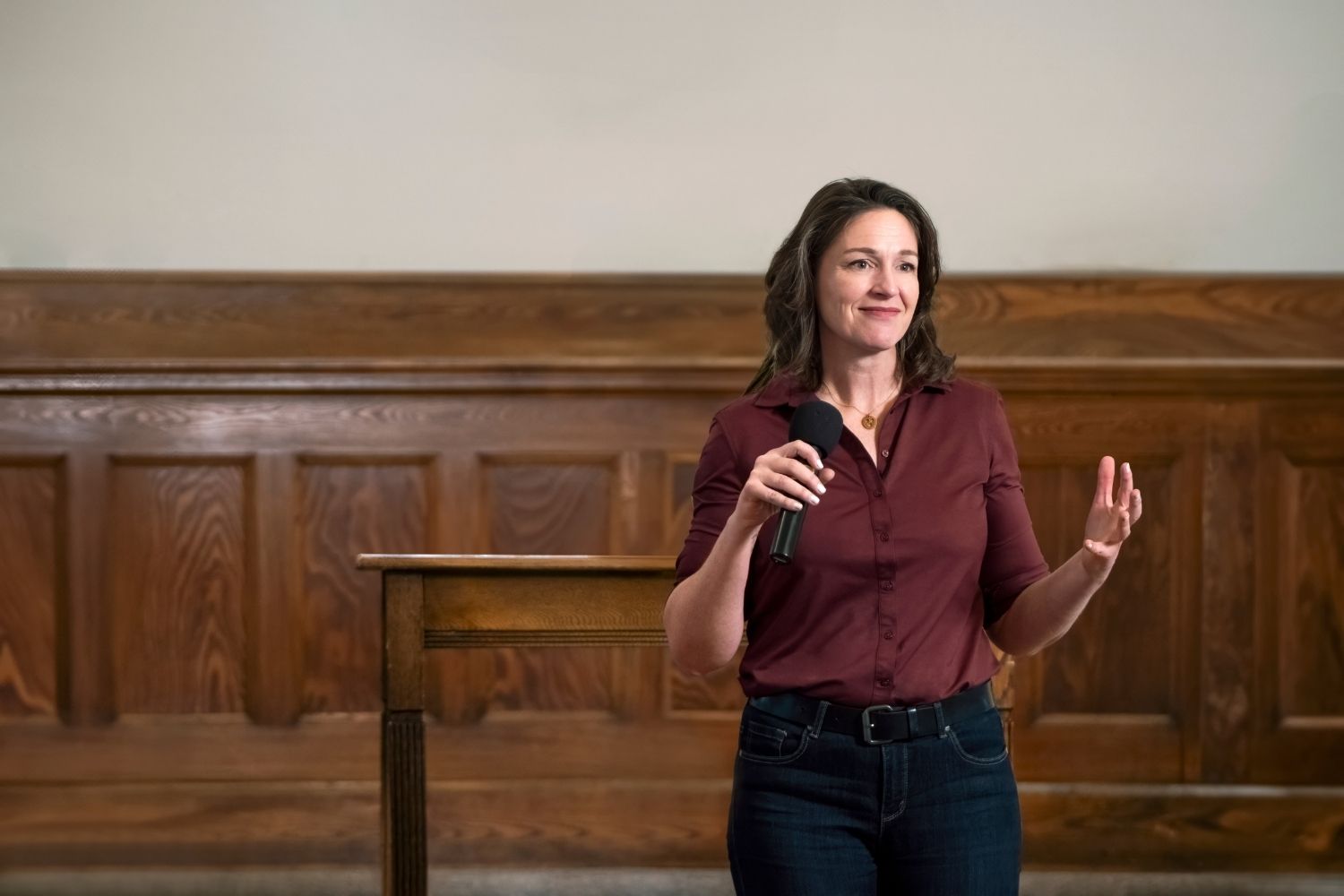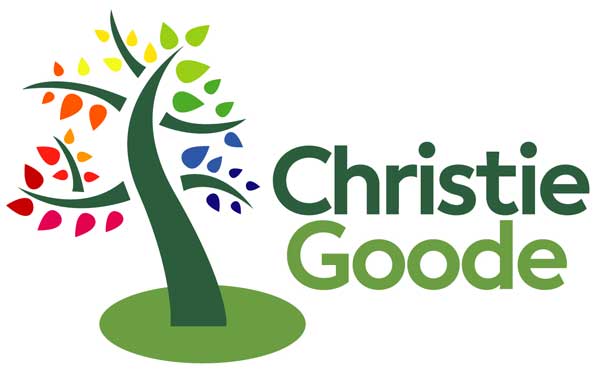Speaking
Building bodies that bless the world
As a leader, you may have noticed that your people’s nervous systems are STRESSED.
How can you build your people’s nervous system capacity so they can care for themselves and also take action for reconciliation in our current cultural upheaval?
How can you help your people to loosen the grip of the past, hold on to your core values, and get curious about what new thing your church or workplace may need to become?
You start with the body.
Not with the mind or heart.
Not with theology or reasoned arguments.
You start with teaching your body how to hold boundaries.
When your body feels safe and you have the skills to stay safe, then you’re ready to engage in tough conversations and participate in reconciliation.
"I'm not here to convince anyone to change their mind on a hot topic issue."
"I'm here to say there's a gentler, more inclusive, and more embodied way we can each manage whatever our personal limits may be."
How Christie Can Help You
Guest Preaching


Conference Breakouts and Keynotes
Training Intensives for your Leadership Team

Signature Talks
All of Christie’s talks are based on integrating her own biblical study with The Wheel of Consent, which was created by Dr. Betty Martin. Topics can be presented in person or online, in shorter 30-90 minute talks or combined into two- or three-day consent embodiment trainings.
1. Consent and the Heart of Yahweh
Public perception nowadays is that Christians are judgmental and exclusionary. How then can we embody the welcoming heart of God… but also maintain some boundaries?
God’s self-revelation as Yahweh literally means he is the one who “is with and for”. So to live as image bearers of Yahweh means that you must constantly navigate – and embody - what you are with and for. Each Yes embodies God’s heart in an emerging world. But what about your No’s?
Key Take-Aways:
2. Clear but Gentle Boundaries
We all tend to get defensive when we’re unsure if others will respect our boundaries. Christie calls it pre-emptive defensiveness.
The Wheel of Consent helps you to locate in your body what you want for yourself, and what you’re willing to do for others. The Wheel exercises then teach you to trust, value and communicate those desires and limits. When you get enough repetitions in your body, your nervous system can relax, knowing that when you reach your limit, you’ll be able to speak up for yourself.
This practice of noticing when you’re giving (to the degree you’re willing) and when you’re receiving (what you want) is essential for incarnating healthier power dynamics so we, the Church, can become more inclusive.
Key Take-Aways:
3. May Your Will Be Done
We all tend to get defensive when we’re unsure if others will respect our boundaries. Christie calls it pre-emptive defensiveness.
The Wheel of Consent helps you to locate in your body what you want for yourself, and what you’re willing to do for others. The Wheel exercises then teach you to trust, value and communicate those desires and limits. When you get enough repetitions in your body, your nervous system can relax, knowing that when you reach your limit, you’ll be able to speak up for yourself.
This practice of noticing when you’re giving (to the degree you’re willing) and when you’re receiving (what you want) is essential for incarnating healthier power dynamics so we, the Church, can become more inclusive.
Key Take-Aways:
4. Power, Consent & Inclusion
Every relationship is a dance, shaped by a back-and-forth exchange that is constantly influenced by power dynamics. These dynamics shift based on energy; differences in personal, status or role power; or on systemic advantages and disadvantages; and they affect how we show up, what we say, and our ability to make honest choices.
To create truly inclusive communities, then, you need to become conscious of these power dynamics as they happen in real time, what they feel like in your body, and enact strategies that create space for authentic giving and receiving.
Key Take-Aways:
